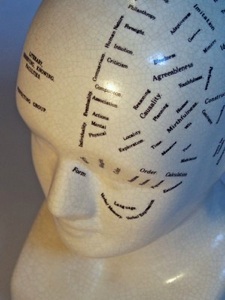NLP & Hypnotherapy
 Find out what's been holding you back and discover the freedom to move forward in your life, reconnect to your dreams and create a positive future.
Find out what's been holding you back and discover the freedom to move forward in your life, reconnect to your dreams and create a positive future.
We are born with unlimited potential but are adversely influenced, for the most part, during our formative years. Our unconscious mind is literal so tell a person often enough that they're stupid and they'll come to believe it and behave accordingly. We really are the products of what we think and the good news is that we can change how we think, react and behave.
Just as you can programme your mind to think and have limiting beliefs so you can change those negative patterns and habits. That's where neuro linguistic programming (NLP) and hypnotherapy can help.
If I could wave a magic wand today what habit, pattern or self limiting belief would you most want to change?
NLP can help you to gain confidence, lose weight, stop smoking, conquer phobias, deal with depression, break bad habits, stop self sabotage and release limiting behaviours in relationships and at work.
With the help of NLP you can clear your past of negative emotions such as anger, sadness, fear and guilt. You will also be able to remove limiting beliefs such as "I'm not good enough" and "I don't deserve wealth and abundance in my life", and you will learn new strategies to achieve your goals and fulfil your dreams.
What is Hypnosis?
 Hypnosis is the induction of an altered state of awareness where the conscious critical mind steps aside to allow an individual to operate through unconscious processes. It is a naturally occurring state of relaxation that opens the doorway between the conscious and the unconscious giving easy access to memories and allowing new information to be stored.
Hypnosis is the induction of an altered state of awareness where the conscious critical mind steps aside to allow an individual to operate through unconscious processes. It is a naturally occurring state of relaxation that opens the doorway between the conscious and the unconscious giving easy access to memories and allowing new information to be stored.
The word hypnosis is derived from the Greek word “hypnos” meaning “to sleep” and while a hypnotic trance is not exactly sleeping it is a deeply relaxed and dreamlike state between sleeping and wakefulness. When a person is hypnotised they become physically relaxed and their brain waves enter the alpha state. This allows the hypnotist to by-pass resistance from the conscious mind and make positive suggestions which will help the individual release unhelpful beliefs, values, and emotional or behavioural patterns and find within themselves their skills, strengths and abilities. We drift in and out of trance regularly when we daydream, become absorbed in a book, lose track of time while focusing on a task or watch TV, spending as much as four hours each day in a trance state.
In this altered state of awareness we are more capable of rapid learning, change, intense healing and growth. With our critical faculties on hold our focus of attention is narrower and our level of awareness on a focal point is much higher than if we were awake thus allowing suggestions to go directly into the unconscious mind.
How Can Hypnosis Help?
 Hypnosis can be used therapeutically to bring about personal development, resolve problems and facilitate self-healing by replacing outdated thoughts and habits that no longer serve a person’s best interest with positive new behaviours and empowering suggestions. Among hypnotists there is a common belief that all hypnosis is a form of self-hypnosis in that a person cannot be hypnotised against their will and no one can impose trance upon another. Even when in a hypnotic trance we can choose not to allow suggestions to be accepted.
Hypnosis can be used therapeutically to bring about personal development, resolve problems and facilitate self-healing by replacing outdated thoughts and habits that no longer serve a person’s best interest with positive new behaviours and empowering suggestions. Among hypnotists there is a common belief that all hypnosis is a form of self-hypnosis in that a person cannot be hypnotised against their will and no one can impose trance upon another. Even when in a hypnotic trance we can choose not to allow suggestions to be accepted.
The ability to modify our thinking processes becomes increasingly difficult as adults because of the deeply ingrained thinking of our subconscious mind which is laid down while we are children. Our subconscious mind becomes a barrier to making positive change. In order to modify how we think we need to modify our subconscious mind. If you try to change your attitudes and beliefs consciously but your subconscious mind doesn't believe the messages you are trying to impose, it won't work.
The purpose of hypnosis, therefore, is to help a person re-program self-limiting unconscious patterns. An induction or guided visualisation for relaxation is a typical way to lead someone into trance where they can unlock buried memories or discover hidden motives.




